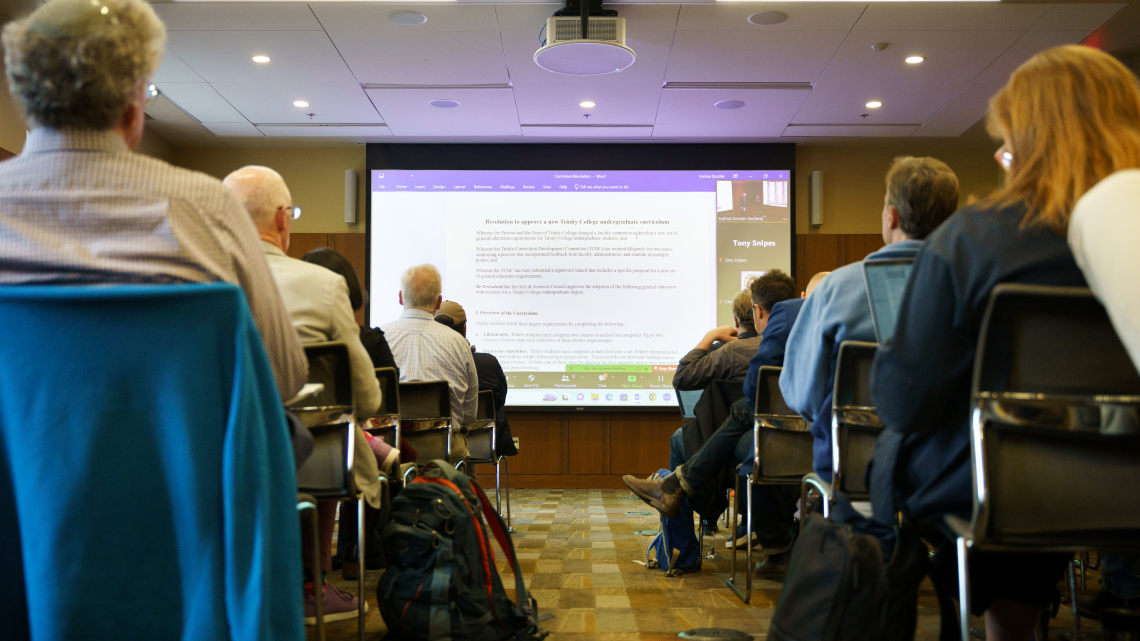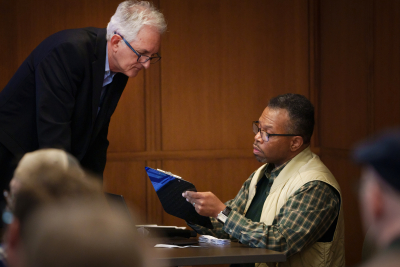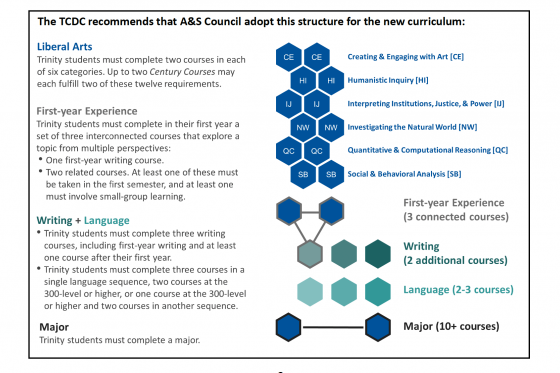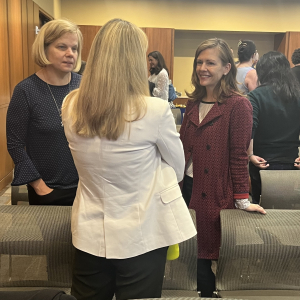
Elizabeth Thompson, Trinity Communications
Trinity College of Arts & Sciences has adopted a new curriculum that will reshape the academic experience of its undergraduate students beginning in Fall 2025, following an April 4 vote by faculty representatives.
Approximately 80% of Duke’s undergraduate student body calls Trinity College its intellectual home, and thus will earn degrees through the Arts & Sciences Curriculum. It marks the first comprehensive update since Curriculum 2000 was adopted a generation ago.

Key features of the new curriculum include an enhanced first-year experience, a structure that encourages exploration across academic disciplines via innovative courses and a renewed affirmation of the value of language studies, writing, humanities and the arts.
“Today’s undergraduates live in a very different world than the students of the early 2000s,” said Gary G. Bennett, dean of Trinity College. “Amid global insecurities, climate change, increased polarization and technological advances that were barely imaginable 25 years ago, a world-class liberal arts education is more valuable than ever. But how we deliver on that promise should evolve over time.”
In March 2022, former Dean Valerie Ashby and past Provost Sally Kornbluth issued the charge to reimagine the curriculum and created the Trinity Curriculum Development Committee, chaired by Professor of Psychology & Neuroscience Scott Huettel. The two-year process that followed included a comprehensive discovery phase in which members of the committee met with faculty, departmental leadership and students to determine the values that would anchor the new curriculum.
“Establishing the curriculum for Trinity College students is one of the most important responsibilities of our faculty,” said Huettel. “We wanted our process to be transparent and student-centered, with continual input from stakeholders throughout our community. The result is a new curriculum that provides our students with considerable flexibility in pursuing pathways through Duke, while encouraging innovative approaches to teaching and course design.”

When a new student arrives on campus in Fall 2025, they will encounter Duke Constellations, a first-year experience that includes a set of three interconnected classes examining a single topic from a variety of perspectives. One of these classes will be a writing course. At least one of the other two classes will involve small group learning, and both will incorporate experiential elements. This structure encourages students to build connections early in their college careers while engaging with complex ideas through an interdisciplinary lens.
To ensure a firm grounding in the liberal arts, students will also take two courses in each of six categories across the Arts & Humanities, Natural Sciences and Social Sciences. Those categories will be: Creating and Engaging with Art; Humanistic Inquiry; Interpreting Institutions, Justice and Power; Investigating the Natural World; Quantitative and Computational Reasoning; and Social and Behavioral Analysis.
Each major may create its own Century Course, designed to encourage exploration of disciplines outside of a student’s previous academic experiences. Century Courses can be described as the course our faculty would most want a student to take if they could only take one course in a particular subject in their life. These classes will be open to all students without prerequisites.

Although requirements for the completion of a major will remain largely unchanged, the new curriculum places increased emphasis on writing and language. Students will complete three writing courses, including the writing course that is part of the first-year experience. The curriculum acknowledges that “instruction in global languages and in writing is central to a Duke liberal arts education,” noting that students will “live their lives in an interconnected world — and much of their career success and personal growth will depend upon their abilities to understand others’ perspectives and express their own ideas.”
Dean Bennett announced that planning toward implementation has already begun, and a $1 million philanthropic gift will support the creation of an office to support that work, led by Interim Dean of Academic Affairs Deborah Reisinger. Reisinger is a professor of the practice in Romance Studies and was a member of the Trinity Curriculum Development Committee.
“Trinity College of Arts & Sciences is committed to providing an educational experience that supports each student’s intellectual and personal growth,” she said. “With the adoption of this new curriculum, tomorrow’s undergraduates will continue to experience the world-class liberal arts education Trinity is known for as Duke University moves into its second century."